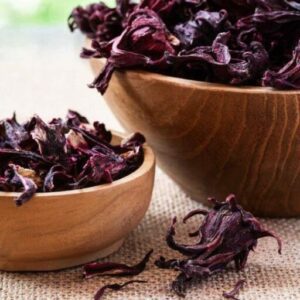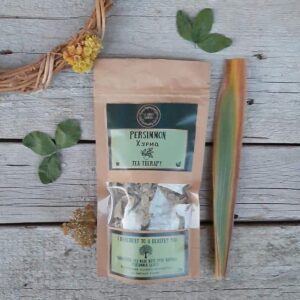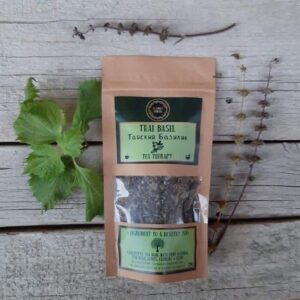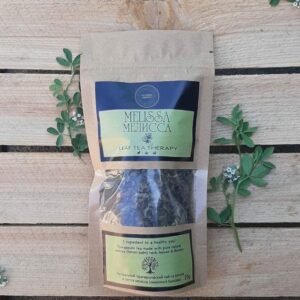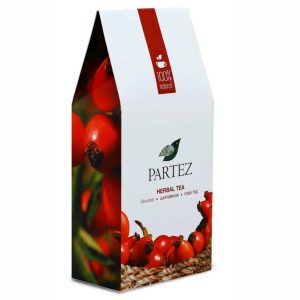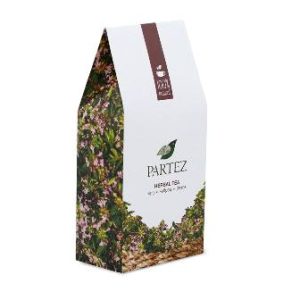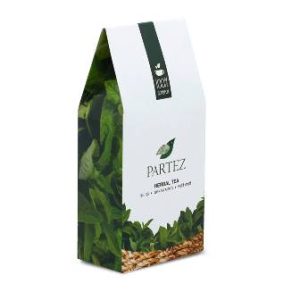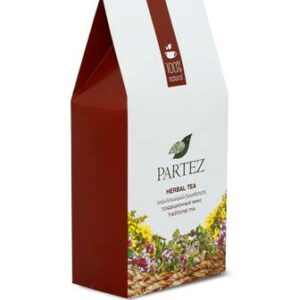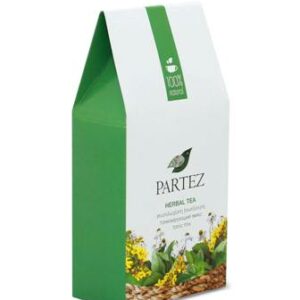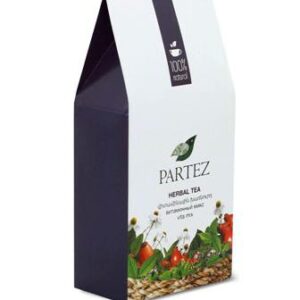-
Hibiscus Tea
How to use:
♡ 1 tablespoon of GGW dried hibiscus flowers placed in 500mL of boiling water, and steep for 5 minutes and strain.
♡ It can be consumed hot or cold
♡ Has a tart taste that is often sweetened with honey or flavored with lemon.
Hibiscus (aka Roselle or Carcade) is a herbal shrub plant grown in warm countries, including Armenia. It’s packed with antioxidants and has many health benefits such as:▪ Balances cholesterol levels
▪ Boosts immunity
▪ Prevents Liver Inflammation and lowers the risk of Fatty liver condition
▪ Lowers blood pressure
▪ Reduces heart disease risks
▪ Natural antioxidant
▪ Lowers blood sugar level
▪ Soothes menstrual cramps
▪ Fights depression & anxiety
▪ Has a natural laxative effects
▪ Aids digestion
▪ Promotes weight loss$2.50 – $86.50Hibiscus Tea
$2.50 – $86.50 -
Armenian Persimmon Leaf Tea
USE
Place 2 teaspoon Persimmon leaves in a cup , pour boiling water and steep for 5 minutes , then strain and enjoy!Chinese Academy of the Sciences found that this particular tea contains a large variety of Vitamin C, tannins, flavonoids, rutin, choline carotenoids, amino acids. In addition, the tea were found to contain 10 elements: Magnesium (Mg), Manganese (Mn), titanium (Ti), calcium (Ca), phosphorous (P), and more. These elements are found to aid to healthy bodily functions.
Compared to other teas, persimmon leaf tea contains a higher level of health and nutritional benefits. Analysis has shown persimmon leaf tea contains up to 10 times the amount of Vitamin C, tannins, flavonoids, rutin, choline and essential amino acid. Compared to other fruits and vegetables, persimmon leaf tea contains up to several times more vitamins.
Scientific research has shown that drinking persimmon leaf tea promotes a healthy metabolism. Rutin aids in softening the blood choline tube, which prevents arteriosclerosis. Flavonoids aid in lowering blood pressure and increase blood flow. According to Japan’s “Longevity” magazine, drinking persimmon leaf tea and prevent melanoma. These health benefits generate anti-cancer and anti-influenza virus interferons.
Persimmon leaves are green from spring to summer and in the fall they change to a beautiful red/orange color with green and black dots.When they are steeped into a tea, the tea is meant to be sipped gently and its complex flavor and aroma savored. The color of persimmon leaf tea is orange that changes to a brown color as it cools. The taste is bitter with a hint of sourness and some sweetness when the tea cools down.
Persimmon leaves are high in fiber and they contain tannins which can help digestion. They have properties than can help prevent high blood pressure and it is said that persimmon leaves have 30 times more vitamin C than oranges. They also possess pro-vitamin C which is not destroyed easily by heat, allowing the vitamin C to survive the brewing process.
Academy of Sciences found that this particular tea contains a large variety of Vitamin C, tannins, flavonoids, rutin, choline carotenoids, amino acids. In addition, the tea was found to contain 10 elements: Magnesium (Mg), Manganese (Mn), titanium (Ti), calcium (Ca), phosphorous (P), and more. These elements are found to aid to healthy bodily functions. Compared to other teas, persimmon leaf tea contains a higher level of health and nutritional benefits.
Young green persimmon leaves are used for tempura. Leaves collected in the spring are used for making persimmon tea. They are also used for wrapping sushi in Japan. Persimmon tea is caffeine-free. Persimmon leaves have a bactericidal and preserving effect on the food wrapped within.$3.75 – $125.00Armenian Persimmon Leaf Tea
$3.75 – $125.00 -
Armenian Thai Basil Tea
USE
Steep 2 teaspoons in a cup of water and let stand for 30 minutes. Take advantage of our large selection of unique teas!
GGA Thai Basil Tea Therapy, All Natural, Packed With Minerals & Vitamins, No GMO, No Chemical Additives, 1 ingredient For a Healthy you!GGA Thai Basil Tea or aka “Holy Basil Tea” comes complete with an array of antioxidants and other wonderful phytonutrients. Some of these phytonutrients, orientin, and vicenin, have been found to strengthen your immune system and bring longevity. Eugenol (one of basil’s volatile oils), making basil a natural anti-inflammatory. So drink a cup of Thai basil instead of taking aspirin to get a natural effect that is long-lasting. Basil comes complete with vitamin A (through beta-carotene), magnesium, and many other nutrients that help improve blood flow and help stop cholesterol from oxidizing in the bloodstream. With the high dose of Vitamin A, your skin will show signs of smoothness and youthfulness and your overall energy will increase as you drink a cup a day cold or hot! ENJOY!!
Grown in Armenia, Thai Basil has a beautiful pungent flavor and smell when used in cooking. Whether you are using it in everything from curries, salads, soups, and stir-fry or garnishing, you will never be disappointed. With the added nutritional benefits, you will truly only know the importance of this herb until you tried it. Thai basil is sweet and grows on purplish stems, topped with pretty, reddish-purple flower buds. The flowers are edible and both leaves and flowers are sweetly perfumed with a mix of a distinct basil scent with a hint of anise or licorice. As such, it is sometimes referred to as “anise basil” or “licorice basil”.
$2.75 – $23.50Armenian Thai Basil Tea
$2.75 – $23.50 -
Armenian Wild Mint Tea
USE : Place 2 teaspoon wild mint in a cup , pour boiling water and steep for 15 minutes , then strain. ENJOY!
Benefits
Mint has been used for centuries to treat stomach and digestive problems and to freshen breath. The dried leaves were used to whiten teeth and as a pest repellent. Mint is still used in medicine, in beauty products and as a food additive. It can be used fresh or dried in salads, as a garnish for hot or cold drinks, or as a tea. It is also used in landscaping as an attractive ground cover or potted plant.A tea made from all-natural wild mint leaves and flowers helps:
-Diarrhea
-Headaches
-Anxiety
-Depression
-Menstrual cramps
-Upset stomach
-Bloating
-Reduces flatulence, heartburn
-Cold/flu$3.75 – $33.00Armenian Wild Mint Tea
$3.75 – $33.00 -
Armenian Melissa Tea
USE : Place 2 teaspoon melissa ( lemon balm ) herb with leaves & flowers in a cup , pour boiling water and steep for 15 minutes , then strain
The word Melissa is the abbreviated Middle Latin form of the Greek word melissóphyllon, which means ’bee leaf‘. The name comes from the Greek word mélissa or mélitta meaning bee itself derived from meli meaning honey. Officinalis is New Latin and means ‘in use pharmaceutically’. The reason for this is that in antiquity, Lemon Balm was cultivated as a food for bees. Virgil and Pliny reported that, due to its strong aroma, leaves of Lemon Balm were rubbed on new beehives to entice the bees.The medical use of Lemon Balm has started more than 2000 years ago. In the 10th century, Arab physicians used the plant to fortify the heart and to treat melancholy. In the Capitularies of Charlemagne the order was given for Lemon Balm to be planted in every cloister garden.
Melissa is popular as a tea infusion. As a seasoning it is extremely versatile, particularly in oriental foods and summer beverages. It is also an important ingredient in herb liqueurs such as Chartreuse and Bénédictine and in spirits such as Carmelite.
BENEFITS
Treats insomnia
Eases indigestion
Treats herpes lesions and cold sores
Helps treat Alzheimer’s symptoms
Relieves stress
Helps reduce anxiety
Boost cognitive function
May help relieve indigestion
Can help treat nausea.$2.75 – $23.50Armenian Melissa Tea
$2.75 – $23.50 -
-
-
-
-
-
-
Wild Thyme Tea
Benefits of Go Green Armenia’s wild thyme tea:
‣ Anti-fungal
‣ Fights indigestion and gas
‣ Treats bronchitis and cough
‣ Lowers blood pressure and cholesterol
‣ Keeps the brain from agingThyme has been known since ancient times for its magical, culinary, and medicinal virtues. Tradition held that an infusion of thyme taken as a tea on midsummer’s eve would enable one to see the fairies dancing. Young women wore a corsage of blossoming thyme to signal their availability for romance. The generic name may have been inspired by one of thyme’s traditional attributes. Greek folk herbalists believed that thyme would impart courage (thumus in Greek) to those who used the herb, particularly soldiers. Greek men particularly liked the pungent scent of thyme and would rub the herb on their chests. The Romans believed that adding thyme to bath water would impart energy. They also included thyme in bedding to chase melancholy and to prevent nightmares.
The strong scent of thyme was employed as a moth repellent, and burned as fumigating incense. The philosopher-herbalist Pliny the Elder recommended burning the dried herb in the house to “put to flight all venomous creatures.” In the kitchen thyme has been used for centuries to season sauces, soups, stuffing, and soups. Thyme has long been recognized for its antiseptic properties. The Egyptians used the herb in formulas for embalming the dead. The herb was among those burned in sickrooms to help stop the spread of disease. Oil of thyme was used on surgical dressings and in times of war as recently as World War I, to treat battle wounds.
$3.75 – $33.00Wild Thyme Tea
$3.75 – $33.00

